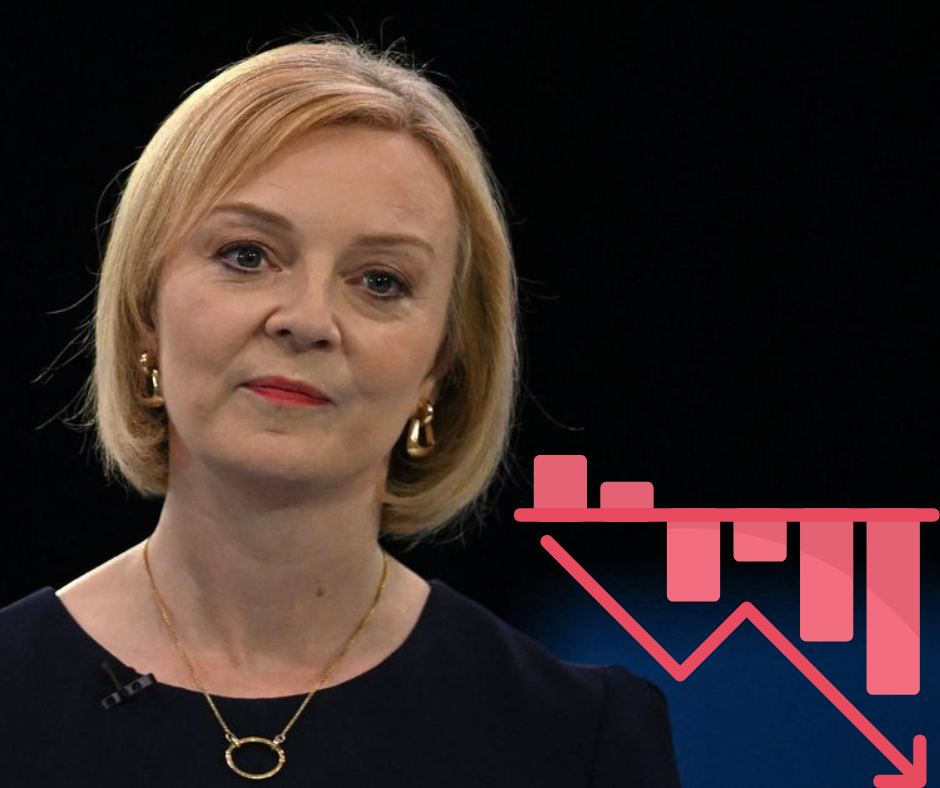As Truss takes charge, figures suggest the UK economy is nearing recession.
According to numbers showing that private sector activity decreased last month as businesses struggled with rising prices, Liz Truss will become the UK’s next prime minister with the economy on the verge of recession.
S&P Global and the Chartered Institute of Procurement and Supply (Cips) reported a “severe and accelerated” decrease in industrial output in August, as well as poorer activity in the UK’s dominant service sector.
The monthly business survey, which is widely followed by the government and the Bank of England for early warning signs from the economy, revealed mounting concerns about soaring inflation and a significant drop in company confidence.
According to the monthly health check from S&P Global and the Cips, cost pressures on companies remained exceptionally high, owing to rising energy and fuel prices as Russia’s aggression in Ukraine drives up wholesale market prices even higher. Businesses, unlike consumers, do not benefit from an energy price cap.
“The incoming prime minister will be dealing with an economy that is facing a heightened risk of recession,” said Chris Williamson, the chief business economist at S&P Global Market Intelligence, with the British economy facing a “deteriorating labour market and persistently elevated price pressures linked to the soaring cost of energy”.
The S&P/Cips monthly purchasing managers’ index decreased to 49.6 in August, down from 52.1 in July. Any value above 50 indicates increased private-sector activity.
Separate retail industry data revealed a slowing in sales growth last month as buyers tightened their belts.
According to the British Retail Consortium (BRC), total sales increased at an annual pace of 1% in August, down from 2.3% in July, due to sluggish clothes sales as summer events concluded and customers holding back on purchasing white goods and other big-ticket products.
The BRC’s chief executive, Helen Dickinson, stated that Truss must provide immediate assistance to individuals and businesses.
“With some predictions of inflation reaching 20% in the new year, households and retailers are preparing for a particularly tough time ahead,” she said.
Last month’s hot weather encouraged stronger spending growth on several items, including suntan lotion, while food and drink sales for summer barbecues increased by 5% year on year.
However, analysts warned that storm clouds were gathering as shops braced for a drop in demand from cash-strapped consumers.
Don Williams, a retail partner at the accountancy firm KPMG, said: “Worryingly, August data revealed a significant fall in clothing sales – the category which has been the most robust performer this year which could signal the start of shoppers pulling back from non-essential spending.”
The numbers come as some experts believe the British economy entered a recession this summer as households tightened their belts in the face of the cost-of-living problem.
The Bank of England predicts that inflation will reach 13%, the highest level since the early 1980s and that a long recession will begin in the fourth quarter.
Goldman Sachs economists predicted this week that if current high wholesale energy prices continue until the new year, inflation might reach 22%, close to tying the postwar record established in 1975.
In her acceptance speech after beating Rishi Sunak in the Conservative leadership race, Truss pledged to “deliver a bold plan to cut taxes and grow the economy”, and also “deal with people’s energy bills” ahead of a tough winter for households and businesses.
According to economists, issues such as sky-high prices, Brexit, and severe staffing shortages are impacting growth. The S&P and Cips snapshot highlighted declining demand for consumer-facing services such as restaurants, hotels, travel, and leisure activities, as households saw the greatest damage to their living standards since the 1950s.
John Glen, the chief economist at the Cips, said: “Port disruption, Brexit paperwork and shortages all continue to play a role in driving inflation, the sector is relatively powerless in the face of ever-increasing energy bills.
“Services businesses will have their eyes firmly on the new prime minister this week as they hope for a policy-driven solution to rocketing costs.”
Online sources: theguardian.com, uk.news.yahoo.com All opinions and views expressed or suggested by the Digital Zeitgeist are not necessarily the same opinions and views held by or suggested by GPM-Invest plus any and all partners, affiliates, parties, or third parties of GPM-Invest. Any type of media distributed by GPM-Invest IS NOT financial advice. Please seek advice from a professional financial advisor

